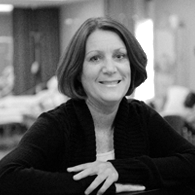Meet our Climate Change Committee Co-Chairs:

Suellen Breakey
Suellen Breakey, PhD, RN, is Associate Director of the Center for Climate Change, Climate Justice, and Health and a Distinguished Teaching Associate Professor in the School of Nursing at MGH Institute of Health Professions. She teaches in the Doctor of Nursing Practice and accelerated BSN programs. Her clinical background includes cardiac surgery, critical care, hospice care, and global health nursing.
For over 10 years, she was a leader with Team Heart, a nonprofit organization that provides RHD screening, cardiac surgical care and follow-up, and patient/provider education in Rwanda.
Her scholarship interests include the impact of climate change on human health and well-being, bioethics, and global health ethics. Dr. Breakey is a co-author of Global Nursing in the 21st Century, which was published in 2015. She co-chaired the National League for Nursing’s 2022 Vision Statement on Climate Change and Health. Dr. Breakey has published widely and presented locally, regionally, nationally, and internationally.

Kent Boyd
Kent Boyd, DNP, RN, PHN is a registered nurse with experience in pediatric hematology/oncology, solid organ transplant, and adult orthopedics. He received his Bachelor of Science in Kinesiology from the University of North Dakota, his Masters in Nursing from the University of Minnesota, and his Doctor of Nursing Practice (DNP) from the University of Minnesota in the Health Innovation and Leadership specialty. Kent focused his doctoral studies on Planetary Health, community climate adaptation and resilience, and transformative systems change. His doctoral work was in collaboration with MCAP, where he developed and piloted a training program for health professionals emphasizing translating climate projections to the impacts on human health, conducting vulnerability assessments with the inclusion of climate modeling tools, and being able to lead, advocate for, and advise community resilience hubs projects across Minnesota.

Melessa Kelley
Dr. Melessa Kelley is currently an Assistant Professor at the University of Texas at Austin in the School of Nursing. Dr. Kelley is Native American (Keetoowah-Cherokee) and one of only 25 Native American doctoral prepared nurses within the United States (US). Dr. Kelley’s overall program of research focuses on conducting culturally congruent research to improve the health and well-being among Native Americans and Indigenous populations focusing on climate change and the environmental impact on overall health and well-being. Understanding and eliminating health disparities among Native Americans and Indigenous populations is the first step toward achieving health equity.
